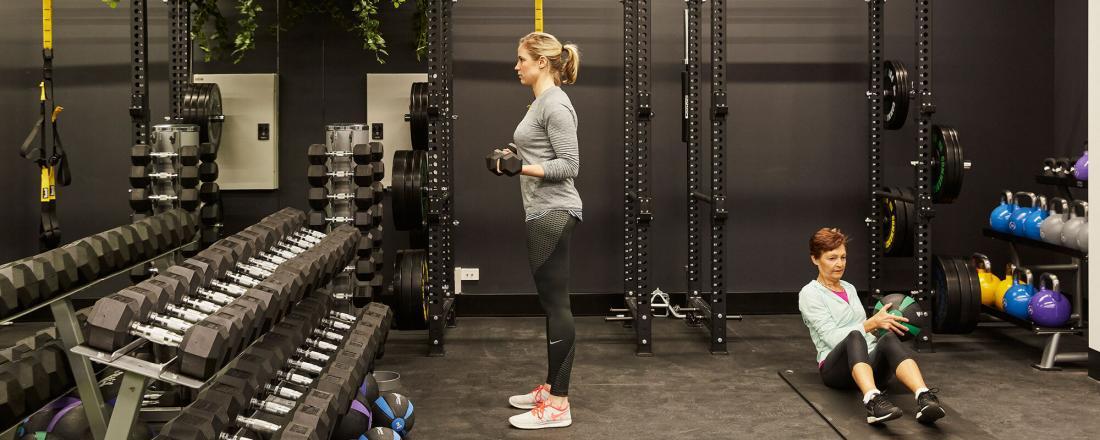
The Importance of Good Posture
Do you watch your posture when sitting, standing, or working out? Bad posture is one of the causes of back pain, muscular imbalances, and spine abnormalities. If you slouch or keep your back in an awkward position, your entire body suffers. Standing up straight can prevent a myriad of problems and reduce injury risk. It also helps maintain your balance and even boost your abilities in running, tennis, dancing, and other sports. In the long run, it protects against back pain, muscle strains, and degenerative arthritis.
It’s never too late to correct your posture. Certain exercises can help. If you’re not sure where to start from, consider physiotherapy. A skilled physiotherapist can give you advice on how to improve your posture and get rid of back pain. They can also show you exercises and stretching techniques that benefit your spine and overall health.
Let’s see why good posture is so important and what to do about it!
The Dangers of Poor Posture:
Most people pay little or no attention to their posture. One in seven Australians experience back problems on a regular basis. These include neck and back pain, numbness and tingling in the legs, disc degeneration, sciatica, or abnormal curvature of the spine. Pain killers and anti-inflammatory drugs only relieve discomfort in the short term.
Back problems can have a variety of causes, and bad posture is one of them. Between 2004 and 2005, 15 percent of Australians experienced recurrent back pain. Common mistakes, such as slouching and leaning back in an office chair, can worsen these problems. Bad posture puts stress on your spine and the surrounding muscles, causing pain and aches. Migraines, headaches, and neck pain may occur too.
Posture can influence how you look and feel. It has a direct impact on your health as well as on your ability to focus and perform your daily tasks. Bad posture affects your energy levels, concentration, and mood. If you’re constantly in a slouched position, your brain and heart may not receive enough oxygen. This leads to fatigue, poor mental focus, and mood swings. Additionally, your joints and muscles are not able to work as they’re intended.
For instance, poor posture weakens your core muscles, which in turn, affects your balance, stability, and physical performance. A strong core is essential for body alignment, proper digestion, and breathing. Over time, bad posture impacts every system in your body, including lung, brain, and digestive function. On top of that, it affects your confidence and self-image.
Slouching causes your back to constrict and compress, forcing the heart and lungs to work harder to pump oxygen and blood. This puts stress on your muscles and internal organs, affects mental function, and triggers breathing difficulties.
Poor posture also keeps your digestive system from working properly, causing bloating, hernias, and acid reflux.
Other side effects include:
• Sluggish digestion
• Neck and shoulder pain
• Wrist pain
• Breathing problems
• Sleep apnea
• Herniated discs
• Pain and numbness in the limbs
• Tension headaches
• Poor muscle tone
• Poor circulation
• Restricted blood flow
• Increased stress
• Difficulty concentrating
• Fatigue and sleepiness
• Brain fog
• Dizziness
According to researchers at Harvard University, testosterone levels increased by 20 percent and cortisol levels dropped by 25 percent in people who adopted a good posture. Sitting slouched increases the harmful effects of stress on your mind and body, disrupts hormonal balance, and strains your lungs.
Why Have Good Posture?
Your back is a complex structure of joints, bones, muscles, and ligaments. Poor posture can affect any of these tissues. It also contributes to mental stress, obesity, arthritis, lower back pain, and injuries. Once you learn to maintain good posture, your life will change for the better. Standing up straight portrays a better, more confident image and improves breathing. Your blood flows freely throughout your body and your brain receives the oxygen needed to function at its peak.
Good posture also keeps your digestive system running smoothly, reduces bloating, and helps prevent constipation. You’ll also experience greater mobility, increased energy, and improved mental focus. Proper posture allows muscles to work optimally and reduces the strain on your heart. Moreover, it helps lift your mood and wards off depression. That’s why many Eastern practices, such as tai-chi and yoga, emphasize good posture.
Standing or sitting with your back straight keeps you in balance and helps you move more easily. If you develop postural imbalances, you may not be able to achieve full range of motion when exercising or playing sports. Once you improve your posture, you’ll be able to change directions more quickly and have better stability. Good posture means:
• Body weight distributed evenly on both feet
• Core muscles tighten
• Arms at your sides
• Neural spine
• Shoulders even
• Chin parallel to the floor
When you’re sitting down, your feet should be flat on the floor, your knees bent at a 90-degree angle, and your shoulders relaxed. Your neck should be straight, not tilted forward.
If you already have postural imbalances search for physiotherapy services and ask a specialist to assess your posture. A good physiotherapist can help fix muscular imbalances, lack of flexibility, back pain, and other issues. They may also create a plan that will pinpoint what you need to reverse bad posture and get rid of aches and pains.
